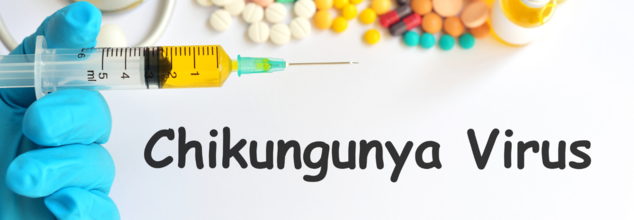- Health Conditions A-Z
- Health & Wellness
- Nutrition
- Fitness
- Health News
- Ayurveda
- Videos
- Medicine A-Z
- Parenting
- Web Stories
Hair And Skin Care Products Can Disrupt Your Child's Hormones

Young children who use personal care items, including lotions, ointments and hair conditioners, had greater amounts of phthalates, which are endocrine disruptors, according to a recent study.
Furthermore, there appeared to be variations in the degree of chemical exposure among children belonging to several racial and ethnic groupings.
Hormone-Disrupting Chemicals: What Are They?
Endocrine disruptors, another name for hormone-disrupting substances, tamper with the body's hormonal system, which controls development, growth and general health. These substances have the ability to mimic, inhibit or change how hormones like thyroid, testosterone and oestrogen normally act.
Common substances that can alter hormones include phthalates, parabens, and several artificial perfumes.
What Are Phthalates?
Phthalates are a class of compounds that are added to plastics to increase its durability and flexibility. Additionally, they are components of various personal hygiene products.
These substances can imitate, inhibit, or otherwise interfere with the body's natural hormones because they are endocrine disruptors. Additionally, there is worry that kids could interfere with important developmental phases.
What Has Prior Research Said
Previous research has connected frequent exposure to phthalates during pregnancy and early infancy to detrimental effects on the developing child, including altered brain function and behavioural issues in addition to other health issues.
Researchers are also concerned that girls may be experiencing their first menstrual period sooner due to the environmental exposure of phthalates and other endocrine disrupting substances.
Although phthalates don't remain in the body for very long, health experts are concerned about the long-term consequences of repeated exposure.
The research, which was written up in the journal Environmental Health Perspectives, looks at the clinical information of 630 kids between the ages of 4 and 8, whose urine samples they had taken. Surveys regarding hair and skin care items applied to the child in the previous 24 hours were completed by the child's guardians or parents.
According to an expert, who worked on the research, the team discovered that the recent use of multiple skin care product types was associated with higher urinary concentrations of multiple types of phthalates.
Another expert points out earlier research on newborns and expectant mothers discovered comparable outcomes, but not on young children in the 4–8 age group.
Furthermore, the experts note that the results serve as a crucial warning that some of these products may be exposing children to endocrine-disrupting chemicals, particularly as social media plays a role in the demand for beauty care among tweens and teens.
Chemicals Hiding In Plain Sight
Numerous personal care products, including body washes, conditioners, shampoos, and lotions, include chemicals that may interfere with hormones.
Despite the fact that these items are frequently marketed as "safe" for children, the study has shown that prolonged exposure to specific chemicals, even in trace amounts, can have negative effects on health.
The results of the study demonstrated that because children's bodies are still developing, they are more susceptible to harmful substances.
No Chikungunya Vaccine For US Adults 60 And Above, Declares CDC

Credits: Canva
The government of the United States has now advised its travelers who are of 60 years and above to not get a chikungunya vaccine. This has come at the backdrop of the investigation of the vaccine, which may have possible side effects.
As of late last week, the Centers for Disease Control and Prevention (CDC) and the Food and Drug Administration (FDA) posted notices about the same. It recommended the pause in use of Ixchiq, the Chikungunya Vaccine, Live.
The notice read:
As of May 7, 2025, 17 serious adverse events, including two that resulted in death, have been reported in individuals 62 through 89 years of age who received Ixchiq during postmarketing use globally. Six of these reports have been from the United States (U.S.). Most U.S. and foreign serious adverse events that have been reported to the Vaccine Adverse Event Reporting System (VAERS), co-managed by FDA and CDC, have been in individuals with underlying chronic medical conditions. Adverse events reported to VAERS may not be causally related to vaccination. Approximately 80,000 doses of Ixchiq have been distributed globally.
It was last year when the government had recommended the vaccine which is made with weakened chikungunya virus. The vaccine was recommended to all US adults who travel to countries where chikungunya could be an issue.
However, it was last month when a panel of vaccine experts who advice CDC heard about an investigation into 6 people who are 65 and older, most with pre-existing medical conditions, who became ill with heart or brain symptoms in less than a week after being vaccinated. More than 10 other such cases have been reported in people from other countries too.
What Happens From A Chikungunya Vaccine?
Chikungunya vaccine is alive injection that is used to prevent infection caused by the chikungunya virus. The vaccine works by causing your body to produce antibodies against the disease.
Why people with pre-existing medical condition may undergo other health symptoms after the vaccine is administered? There may be due to drug interaction. Anyone with pre-existing health condition may already be prescribed certain medications, which may interact with the ones injected from the vaccine.
The vaccine is also capable of causing severe or prolonged chikungunya-like reaction as it consists the weakened virus of the same diseases.
What Are The Common Side Effects Of The Vaccine?
There are certain side effects of the vaccine which may happen to anyone who has taken it, they include:
- Difficulty in moving
- Fever
- Joint Pain
- Muscle pain or stiffness
- Bloating or swelling of the face, arms, hands, lower legs, or feet
- Burning, numbness, tingling, or painful sensations
- Rapid weight gain
- Tingling of the hands or feet
- Unsteadiness or awkwardness
- Unusual weight gain or loss
- Weakness in the arms, legs, or feet
There are other side effects too, which are often not intensely known, they include:
- Blurred vision
- Coma
- Confusion
- Decreased urine output
- dizziness, faintness, or lightheadedness when getting up suddenly from a lying or sitting position
- fainting
- fast or irregular heartbeat
- headache
- increased thirst
- muscle cramps
- seizures
- sweating
- swelling of the face, ankles, or hands
- swollen joints
- trouble breathing
- unusual tiredness or weakness
While some side effects may occur, they usually do not need medical attention. However, if you are on any other medication, a strong drug, then you may need to be put under supervision to see how the drug reacts with your body's immune system.
AI Can Now Detect Cancer Survival Rate By Looking At Your Selfie

Credit: Canva
As medicinal science progresses, researchers have developed an AI mechanism that uses a selfie to determine a patient's biological age and judge how well they may respond to cancer treatment. The research, which was published in the journal Lancet Digital Health and stated that because humans age at different rates, their physical appearance may offer insights into their so-called "biological age". This biological or physiological age can help estimate a cancer patient's response to chemotherapy.
How Was FaceAge AI Tool Developed?
The researchers wanted to analyse whether a person's biological age could be tested based on how a person looks. This could include whether someone could undergo intensive cancer treatment based on how frail they appear to be. Researchers said they wanted to see whether they could go beyond the subjective and manual eyeball test by creating a "deep learning" artificial intelligence, or AI, tool which could assess simple selfies. That is how they created the FaceAge AI tool. Trained using 59,000 photos, this AI tool can estimate a person's biological age, as opposed to their actual age, by scanning an image of their face.
"Our study now has shown for the first time that we can really use AI to turn a selfie into a real biomarker source of ageing," said Dr Hugo Aerts, corresponding author of the paper.
Researchers found that the biological age of patients with cancer was, on average, five years higher than their chronological age. They also found that older FaceAge AI readings were associated with worse survival outcomes, especially in people over 85 years of age.
More studies assessing FaceAge are underway, including whether it could be used for other conditions or diseases and what impact things like cosmetic surgery or Botox have on the tool’s accuracy.
"We have demonstrated that AI can turn a simple face photo into an objective measure of biological age that clinicians can use to personalise care for patients, like having another vital sign data point. It was another piece of the puzzle, like vital signs, lab results or medical imaging. We want to be clear that we view AI tools like FaceAge as assistance, [to] provide decision support and not replacements for clinician judgment," Dr Ray Mak, co-senior author of the paper, said.
Trump’s Surgeon General Pick Raises Eyebrows With Vaccine Comments And Wellness Claims

Credits: Instagram/ @drcaseyskitchen
In another news, President Donald Trump's latest nominee for US surgeon general, Dr Casey Means, is better known to some as a rising wellness influencer. Over the past year, she has shared her health philosophy with many on various podcast channels, which are popular for wellness content, most of them being right-wing podcast, as US News describes it. These podcasts have discussed everything from organic diets, chronic diseases, their prevention, and of course, vaccine skepticism, and spirituality.
She may use the surgeon general's platform to promote the lifestyle-based approaches that she has been talking about, which may challenge the conventional views on pharmaceuticals, vaccines, and modern medicines.
Focusing On Root Cause
Now 37, Dr Means left her residency program to focus on what she calls the "root causes" of disease. She believes that chronic illnesses such as obesity, infertility, cancer, and Alzheimer's are not being properly addressed by traditional medicines.
As per her, a combination of environmental toxins, processed food, and tech overuse is damaging the body's metabolic system, which remains the core of most chronic health problems.
Speaking to Joe Rogan in October, she said: “It’s all caused by metabolic dysfunction, a term that I never learned in medical school.” Her philosophy closely mirrors that of Health Secretary Robert Kennedy Jr., who has called for deep investigations into environmental factors behind conditions like autism.
Dr. Means has voiced concern over the widespread use of certain drugs. On “The Tucker Carlson Show,” she criticized the overprescription of birth control pills, calling it a “disrespect of things that create life.” She also raised alarms over the use of popular weight-loss drugs like Ozempic, calling them “very dark” and suggesting they promote the false idea of a “magic pill” for health.
Rejection Of Processed Food
Much of Dr. Means’ health advice centers on diet. She advocates for organic, non-GMO foods and warns against refined sugars, pesticides, and ultra-processed meals. On Jay Shetty’s podcast, she even suggested an executive order to eliminate added sugars from school lunches.
Her concerns extend to seed oils—like canola and soybean—which she groups with harmful food additives. Although mainstream nutrition experts say such oils can be beneficial in moderation, Means believes they contribute to declining public health.
While Dr. Means often prefaces her vaccine comments by noting it's not her area of expertise, she has publicly questioned parts of the U.S. childhood vaccination schedule. On Kristin Cavallari’s podcast, she pointed to the hepatitis B vaccine for newborns as her “gateway” to questioning broader vaccine policies.
She also criticized COVID-19 vaccine mandates, saying they caused significant societal harm and sparked public distrust in health institutions. “Maybe we shouldn’t be blindly trusting the experts,” she said.
Dr. Means blends science with spirituality in her view of wellness. She’s described current public health trends as “extinction-level” and frequently says “Rome is burning” to describe the urgency. For her, healing requires not just lifestyle changes but also a deep spiritual reconnection with the body, Earth, and the divine.
“Do we want to connect with God and respect these temples we’ve been given?” she asked Rogan. “That’s the choice we have right now.”
© 2024 Bennett, Coleman & Company Limited

